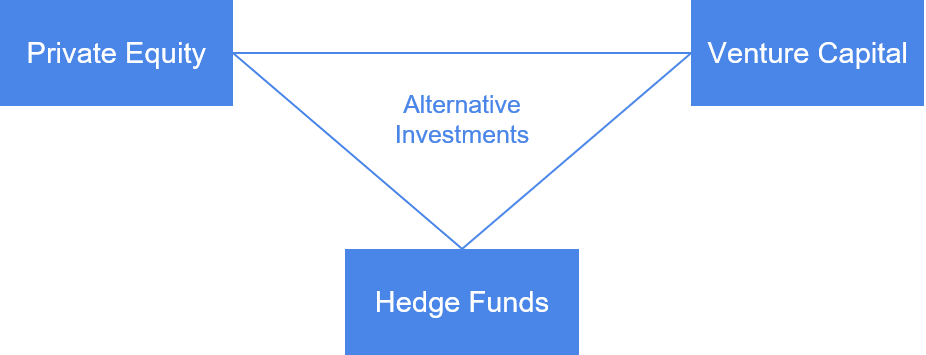Brokerage Accounts
The first and foremost platform for investing for the individual investor is a personal brokerage account. It is the vehicle through which we can trade, view our portfolio and its performance, stream real-time quotes of stock prices, and access information about companies. Choosing a suitable brokerage account is important in helping our investment process stay efficient and seamless so that we can focus on the investing and not the mechanics of the platform. Factors that influence our choice of a brokerage account can range from the financial costs and requirements to the actual user interface. We will begin by discussing the layout design.


Layout
The design of our brokerage account on the web should be sleek, straightforward, and user friendly. It should be easy to access relevant information like trade history, trade status (whether it has been executed or not), real-time portfolio management, etc. We want to keep in mind that if we want to make good investment decisions, the tools that we use should help us achieve that effortlessly. Of course, any tool has a learning curve, but if we are still fumbling around the website trying to find important things about our account a month into opening it, perhaps consider that there are better platforms out there. Remember, more information is not necessarily better. Viewing a cluttered screen doesn’t help us when we just need the important information. There should be clear separation of tasks for different parts of the website so we can navigate it with ease.
Minimum Deposit
One consideration when opening a brokerage account is that many will require a minimum deposit. If we are just opening one to play around a bit with investments, we might choose a simple trading platform with minimal deposit requirements. However, most fully fledged trading platforms will require a moderate minimal deposit amount, with incentive to deposit more.
A key factor in choosing our brokerage account should be the fee that we will be charged per trade. It should be at least in line with major competitors. Lower fees do seem better, but if we are serious about investing, it is better to choose a great platform with average fees than a subpar platform with little to no fees. Remember, most brokerages will charge you both a fee to open a position, and a fee to close out a position. For example, if we buy 100 shares of a stock, we might be charged $6 for buying into the position, and another $6 for selling out of the position.
Mobile Apps
In this day and age, we are often on the go, meeting friends, participating in events, going to classes, or on the way to work. Mobile apps exist for so many things, and some are perhaps just a fad, but it is important for certain types of investors. The stock market in the U.S. is open from 9:30am to 4:00pm, so when we are out and about without a laptop on us, sometimes we might want to make a trade. Functionality of the mobile platform must be just as great, if not even better than the website. Layout must be intuitive and efficient.

Gameplan
That said, it is not wise for the average investor to trade every day because it racks up trading costs from fees, and trading too much can also make us lose sight of our investment thesis and original plan. One of the important things to decide when delving into managing a personal brokerage account is to know when we are trading as an investor with a medium to long term mindset, or as as a trader with a relatively short term plan. It is important to be honest with ourselves and remind ourselves from time to time because if we lose track of what we set out to do, we will be taking unnecessary risks and lose our discipline as well as control of our emotions. With a brokerage account comes great responsibility!
Mutual Funds
For those who wish to leave the investment process to professionals, mutual funds are definitely a great way to get exposure to a diverse portfolio. They provide us a way to access the stock market without having to buy shares of companies which, while having the potential for great returns, is also subject to idiosyncratic risk - the chance that a negative headline news or event impacts that one company’s stock. Diversified portfolios are offer broader equity exposure to the engine of growth that is American ingenuity. Below is a reminder of how mutual funds work. Individual investors buy shares of a fund. The fund uses the pooled capital to buy a portfolio of companies’ shares. If an investor wants to exit his investment, he will redeem his fund shares with the mutual fund instead of selling shares of the individual companies.

Fixed Income
There are many asset managers who offer funds for fixed income, which is useful for investors who might not have ease of access to this asset class on their own. It is much easier for the average investor to invest in a bond fund rather than individual bonds. However, equity funds are more widespread, so we will focus on those.
Equity
Equity funds give investors diversified exposure to stocks. However, not are created equal. Over time, the investment management industry has developed a whole suite of funds to suit the preferences of different investors. There are funds that have different points of emphasis like growth, value, international, small cap, large cap, technology, healthcare, etc. A variety of funds give investors options when choosing what type or sector of companies they want to invest in.
Alternatives
Hedge Funds
When the plain and vanilla gets boring for some investors, hedge fund step in. These are investment vehicles that sell themselves with unique strategies that are not the standard buy and hold. Of course, there is are still hedge funds who operate in the traditional sense of investing, but there are also many alternative strategies out there. From quantitative analysis where computers and algorithms identify patterns and make trades to niche focuses like convertible bonds or distressed debt, hedge funds attract investors who want and can take more risk in order to seek a higher return. Often times, in order to participate, one would have to put up a sum of money much greater than would be necessary for a mutual fund. The best hedge funds make more money for the investors and the managers than any mutual fund, but many also fail altogether and close down. It is an evolving, dynamic space.

Private Equity
For investors who don’t need the liquidity of public markets and are willing to lock up large sums of capital for long periods of time, private equity can be a good solution. Usually, this is not possible or ideal for the average individual investor, but for a few very wealthy and even endowments who want exposure to equity without having to think about the daily swings of stock markets, this is an ideal investment vehicle.
Venture Capital
For investors that feel like investing in mature established companies is essentially missing the boat on the large potential gains, VC can be attractive. The idea is if we invest in a portfolio of small and early stage companies where we can get a larger percent of ownership for our money, maybe one or two of them will become really successful, more than offsetting all the others that ran out of business. It is a high risk field, but very interesting, as the fund manager gets to learn about all sorts of up and coming companies and technologies. However, again, this is unfortunately not easily available to the average investor, since to start a type of fund like this, we would already need to have enough capital to help dozens of other startup companies that need our capital. Fascinating stuff though!
Own Physical Securities
The last and most antiquated form of investing is to just own the physical certificates of stock ownership or bond ownership. This is a neat idea, but highly impractical for investing given all the other resources we have at our disposal. Feel free to do it for the purposes of a hobby or decoration though.
Review
In the process of investing, self awareness is important. It is a good idea to know whether we are the hands on type that wants to choose our own investments, or the hands off type that would be happy to leave the job to someone else for a small fee. This lesson covered some of the common vehicles or platforms we can invest through. The next lesson will discuss the types investment products we can access for different asset classes.